I think maybe it’s all to do with guilt. I should say at the outset that I’m not a person who suffers much from guilt — though there are those who suggest that my thickness of skin has more to do with it than the absence of occasion. Whatever, there can be no doubt that membership of the Society can, from time to time, be guilt-inducing. I’m not thinking here of the starving millions who might be fed by what we spend on booze, but of a sentiment intrinsic to drinking Society whisky.
It’s to do with the more-or-less mental pleasure which inspection of a fine whisky brings: the discernment of the subtle variety of aromas and the discrimination among the tastes which accompany them. It’s to do with the effort of mind which this demands, and it’s about how we feel when we knock the stuff back without paying much attention. We all do it from time to time — or at least I do, which I admit is not necessarily the same thing. You come home to relax after a hard day, or you are feeling sleepy, or the dog has just shat in a corner and you have to clear it up, and what you want is a cup of comfort. So you grab a glass and pour a dram and put some water in it and drink and relax.
That’s when the guilt kicks in: for as you drink the second glass, you realise that the bliss you feel is only indirectly related to the quality of the whisky — and that you might as well have been drinking a blend, as far as your consciousness of flavour goes. And after that glass, or maybe the third, you look at the level of whisky in the bottle and you reflect on what you have missed. Perhaps, if you are of a moralising turn of mind, you think how much good might have been done by the value of the wasted opportunity. And maybe – just maybe – you reflect that in future you will make sure that there is some decent cheap stuff in the house which you can use instead of Society whisky on such occasions.
Now I feel I ought in decency to advise you that this line of thought is in fact erroneous. Try it: go down to the supermarket and buy a cheap blend and your palate, accustomed as it is to Society whiskies, will reject the interloper and, instead of the mindless comfort you expect on stressful occasions, your relaxation will be destroyed by the perception that the cheap whisky really doesn’t hit the spot, as they say. You may be philosophical and reflect that this is the price you pay for habitually drinking great liquor. Or if you are proactive, you may go out and buy some decent proprietary malt, of which there is no shortage. With that, you may still discern a difference, but not enough to destroy your repose.
Now it must be admitted that, alongside famine and earthquake and war, this does not figure as one of humanity’s great tribulations. But we all do what we can, and last year the Society’s elegant and ingenious Marketing Director, Rebecca, identified this as a wrong which ought to be righted. She suggested that we produce a bottle which will fill the gap: which will comfort without demanding, which will console without disappointing and will generally be good enough, offered to philistines, to elicit squawks of delight.
Now that’s not a simple brief but, armed with it, Euan and his fellow curators of the Society’s whisky stocks went away, like trolls among their treasures, to see what could be plundered without prejudice to their subterranean schemes. They came up with a whisky, the amalgamated product of an undisclosed number of sherry casks, which met Rebecca’s request. I tasted some of it recently. They even made a video of me tasting it: fat lot of good it did them, for I was incoherent. Accustomed as I was to commenting on varieties of flavour, I was reduced to saying it was a lovely whisky – which it undoubtedly was – and muttering a few obvious generalities.
So there we have it: a Society dram for those occasions on which a parade of glasses and water and tasting notes just feels a bit over the top. It seems there may soon be several such bottlings. The problem was what to call it — or them — and it was Rebecca’s problem. She couldn’t use the Society’s established — if arcane — system of numbers, for that refers only to particular casks. She decided it had to have a single name, which was fair enough. She couldn’t use any name which had already been used for drink, for all of the existing names — and they are legion — are somebody else’s Registered Trade Mark, and by law, only the owners are entitled to use them.
At the time this was not the only thing Rebecca had on her mind. She was thinking about the coming year, 2023, when the Society would be celebrating its 40th birthday. And she had the idea that the perfect name would embody the spirit in which the founders founded the Society – and which pervades it to this day. She and I had several discussions about possible names, helped by the odd dram, but I’m afraid I wasn’t much use. Rebecca suggested ‘Mischief’, which was appealing, but dropped it when I pointed out that though in recent times ‘mischief’ has come to mean little more than naughtiness, its root meaning is evil, which was certainly not appropriate, given that the principal objective of The Scotch Malt Whisky Society is to maximise the sum total of human happiness. (OK, so we have a good time doing it, but why not?)
I forget exactly when it was, but early in the New Year, Rebecca called. “I think I’ve got it,” she said. “Maverick. It means unorthodox, masterless, independent, resistant to authority. It fits you and your chums exactly in 1983. What do you think?”
I was a bit taken aback. I could see the appeal of the name, but had been hoping for something more Scottish, like ‘cateran’ — which was not much different from maverick, but Gaelic — though I had to admit that only about a dozen folk would know what it meant.
“It’s American,” I said, as though this were something against it. Then I thought about how often I rejoice when I discover some word new to the English language, which has come from our cousins across the Atlantic. “I’ll think about it,” I said.

SMWS Founder, Pip Hills with the 40th anniversary bottling
I did, for a week or two. My main objection was to the associations which the word had acquired thanks to a cheesy television soap opera of the same name, which screened, I think, back in the 1970s. It was a saga of a family in the American West at some period roughly in the later 19th century. The plot was negligible and its practitioners made much use of the double-acting revolvers which, though rare and expensive in the actual West, became a commonplace of its mythical manifestation. Rebecca decently refrained from pointing out that only someone as old as me would make any such association. And I could see the point which she had refrained from making. I really couldn’t think of any other objection, and just out of curiosity, looked up ‘maverick’ in the OED and on Google and in several other places, and, to my astonishment, discovered that not only was it the right name, but it couldn’t be more appropriate: as follows.
The name comes from that of a historical individual, one Samuel Maverick, who died in 1870 after an extraordinary career, mainly in Texas. Born to a reasonably opulent, slave-owning family in the Carolinas, after graduating from Yale he would become an unsuccessful gold miner, a lawyer, a politician and eventually a landowner on an enormous scale. Evidently a hustler of some ability, and energetic, he was one of the signatories of the Texas Declaration of Independence after escaping from the Battle of the Alamo. (The latter, by the way, wasn’t in the least like the John Wayne version and most of the defenders spoke Scots Gaelic.) As well as fighting the Mexicans, Maverick fought the Comanches – the leader of whom had red hair and freckles and also spoke Gaelic, curiously. After doing time in prison, then surprisingly becoming mayor of San Antonio and a member of the Texas legislature, Maverick acquired around 65,000 acres of land on which he ran cattle which he refused to brand: so as not to hurt them, he said. Since a burnt-on brand was the only way of proving ownership of free-range cattle, Maverick could and did maintain that all unbranded cattle belonged to him. Needless to say, his enemies suggested that this might have been a motivation.
Now the matter of brand is interesting, for the use of the word, as in ‘whisky brand’, doesn’t appear until the 19th century: as a label which establishes ownership of a commodity. It’s derivative, a metaphor, whose original is the red-hot iron. Now you may recall that when, in 1983, we decided to set up the Society and bottle individual casks, our main obstacle was the fact that all distillery names are Registered Trade Marks. Hence the numbering system for almost all Society bottles – but not for Maverick. Appropriate, don’t you think?
The Maverick bottling will available to purchase in August Outturn — on sale Friday 4, midday AEST — for all members of SMWS Australia.








